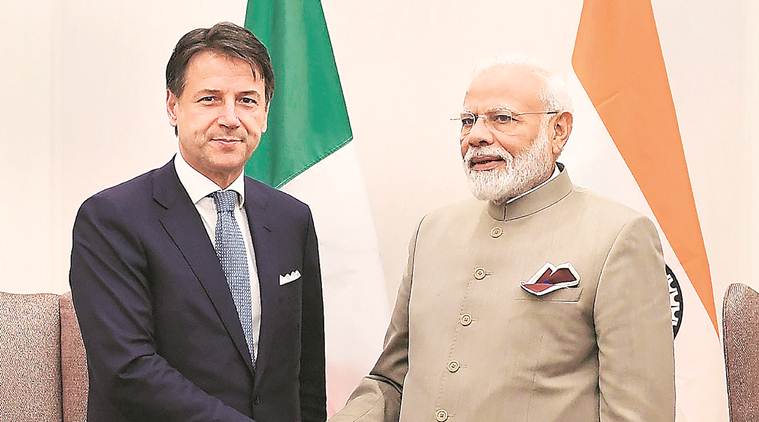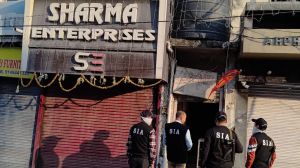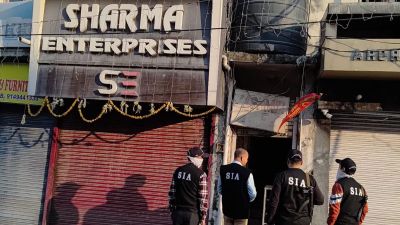INDIA TUESDAY used the opportunity to hit out at the China-Pakistan nexus at an international forum as Prime Minister Narendra Modi stressed the need to “avoid politicisation” of mechanisms like sanction listings and the Financial Action Task Force (FATF). He called for such mechanisms to be enforced.
Modi made these comments in a closed-door session while speaking at the Leaders’ Dialogue on Strategic Responses to Terrorist and Violent Extremist Narratives, which is being organised by Jordan and New Zealand, among other countries at the United Nations headquarters in New York.

After the meeting, Ministry of External Affairs Secretary (west), A Gitesh Sarma, said: “The Prime Minister said that terrorists should not be allowed to get funds and arms. For this objective to be realised, we need to avoid politicisation of mechanisms like UN listings and FATF. These mechanisms need to be enforced.”
Pakistan has in the past accused India of politicising these mechanisms, pointed to the listing of Jaish-e-Mohammed (JeM) chief Masood Azhar. Delhi, however, has raised the issue of politicisation of the listing regime, even as the FATF is likely to take a decision on Pakistan’s blacklisting by the end of September. China is currently the chair of FATF.
At the forum in New York Tuesday, Sarma quoted Modi as saying that a terrorist attack anywhere in the world “should be considered terrorism — not good or bad terrorism. Not more or less”.
ExplainedPak’s China card
Pakistan’s case is coming up at the Financial Action Task Force (FATF) this month-end. With China currently chairing the global anti-terror funding body, there is concern in India that Pakistan will get a long rope and may not be blacklisted despite failing to adhere to its commitments.
“The Prime Minister called for qualitative upgradation in the ongoing cooperation and intelligence sharing through bilateral and regional frameworks,” he said.
Sharing India’s experience, Sarma said, Modi told the meeting that democratic values, diversity and inclusive development are the most important weapons against ideologies that promote terrorism, extremism and radicalism.
Story continues below this ad
The Prime Minister, he said, called for global solidarity and readiness against terrorism in the same way as the world has shown solidarity against challenges like climate change. Modi also reiterated his call for a global conference on international terrorism — an idea he had first floated during his visit to Maldives in June.
Tuesday’s meeting also took stock of the Christchurch Call to Action to eliminate terrorists and violent extremist content online. India has supported the Christchurch call to sanitise cyberspace from content that promotes and eulogises terrorism, hate and violence, Sarma said.
India’s “rising stature” and “strong democratic credentials” have been increasingly resonating in multilateral fora. Here, it was exemplified by French President Emmanuel Macron’s opening statement where he expressed appreciation for India’s association to the Christchurch call, particularly as a democracy that represents over a billion people.
President Macron said India’s support takes the entire initiative to new levels and gives it a greater sense of action towards dealing with, content and use of online techniques. While there was no outcome document from the meeting, Sarma said that it was a new initiative that is evolving.
Story continues below this ad
The issue of terrorism also came up during the Prime Minister’s meeting with the Emir of Qatar, Tamim bin Hamad Al Thani — they also discussed the issue of counter-terrorism.
Modi tweeted: “Delighted to meet @TamimBinHamad, the Amir of Qatar. We had productive talks on deepening bilateral cooperation between our countries.”

 Prime Minister Narendra Modi with Italian Prime Minister Giuseppe Conte on the sidelines of the United Nations session in New York. (PTI)
Prime Minister Narendra Modi with Italian Prime Minister Giuseppe Conte on the sidelines of the United Nations session in New York. (PTI)






